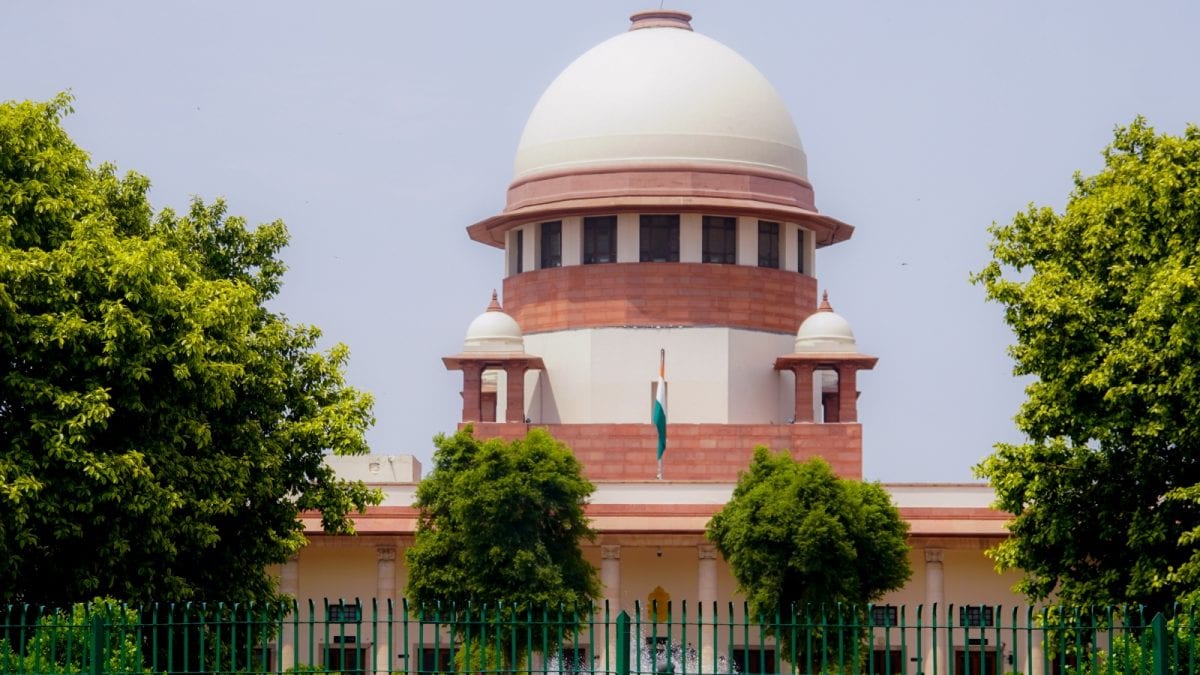Last Updated:
The Supreme Court has dismissed an appeal challenging the acquittal of five accused in the alleged 1996 Bihar honour killings of two brothers and two sisters

With this judgment, the alleged honour killing case, which lingered for nearly three decades, has been closed.
The Supreme Court on August 29 dismissed an appeal challenging the acquittal of five accused in a case related to the alleged honour killings of two brothers and two sisters in Bihar dating back to 1996. The court upheld the Patna High Court’s 2013 decision, which in turn had affirmed the trial court’s 2012 order acquitting the accused for want of evidence. A bench of Justices Sandeep Pandey and Joymalya Bagchi observed that the prosecution could not establish the case beyond reasonable doubt as it rested only on weak circumstantial evidence, with no direct testimony linking the accused to the alleged murders.
The case arose from two separate FIRs registered in December 1996 following the recovery of two unidentified male bodies and two unidentified female bodies. The prosecution claimed these were the remains of Anjani Kumar Sharma alias Sablu and Yogesh Sharma alias Dablu, brothers of complainant-appellant Nandeshwar Kumar, and Renu Kumari and Rinki Kumari, daughters of landlord Rajendra Prasad Pandey. The prosecution alleged that Kumar and his brothers, who were tenants in Pandey’s house, developed relationships with Pandey’s daughters. It was alleged that these affairs were disapproved of, the brothers were asked to vacate the premises, and the family later conspired to eliminate all four victims to protect its honour.
Recommended Stories
The investigation led to the arrest and charge-sheeting of Rajendra Prasad Pandey and others between 2005 and 2006, nearly a decade after the alleged incident. Rajendra Prasad Pandey and Yogendra Pandey were arrested in July 2005, Ravindra Kumar Pandey surrendered in June 2006, Upendra Kumar Pandey was arrested in August 2006, and Pratap Pandey was arrested in September 2006. All were put on trial after the cases were amalgamated owing to their common thread of alleged love affairs leading to so-called honour killings.
During trial, the prosecution produced material to suggest motive but failed to bring forth eyewitnesses or direct evidence of the crime. The trial court noted that even the identity of the dead bodies could not be conclusively established. The evidence presented did not prove that the recovered bodies were those of the appellant’s brothers or of the accused’s daughters. Further, the plea of alibi raised by the accused was accepted, with the court finding no evidence to dislodge it.
The trial court concluded that the entire case rested on circumstantial evidence, but the prosecution was unable to demonstrate a complete and unbroken chain of circumstances pointing conclusively to the guilt of the accused while ruling out every possibility of innocence. Accordingly, on December 18, 2012, the Additional Sessions Judge, Buxar, acquitted all the accused, extending to them the benefit of doubt.
The Patna High Court, in its judgment dated June 26, 2013, dismissed the complainant’s appeal and upheld the trial court’s findings. The High Court held that the acquittal was justified given the lack of conclusive evidence and that no grounds were made out to overturn the findings.
When the matter reached the Supreme Court, the bench reiterated the settled principle that appellate courts should interfere with an acquittal only if the findings are perverse on the face of the record or if no view except one of guilt is possible after appreciation of evidence. Where two views are reasonably possible, one consistent with innocence and the other with guilt, the appellate court should not disturb an acquittal.
The apex court recorded that both the trial court and the High Court had carefully scrutinised the evidence and had rightly concluded that the prosecution had failed to prove its case. The Supreme Court held that there was no compelling reason to interfere with the concurrent findings of acquittal. The Court emphasised that the case was built solely on a weak theory of motive without substantive corroboration, and the identity of the bodies itself was in doubt.
Two of the accused, Rajendra Prasad Pandey and Yogendra Pandey, passed away during the pendency of proceedings, leading to abatement of the appeal against them. The Supreme Court, after threadbare examination of the record, affirmed the acquittals of the surviving accused, upholding the benefit of doubt extended by the trial court and confirmed by the High Court.
With this judgment, the alleged honour killing case, which lingered for nearly three decades, has been closed, the apex court refusing to disturb the concurrent findings of acquittal. The appeal filed by Nandeshwar Kumar was dismissed.
About the Author

Sanya Talwar, Editor at Lawbeat, has been heading the organisation since its inception. After practising in courts for over four years, she discovered her affinity for legal journalism. She has worked previousl…Read More
Sanya Talwar, Editor at Lawbeat, has been heading the organisation since its inception. After practising in courts for over four years, she discovered her affinity for legal journalism. She has worked previousl… Read More
Loading comments…
Read More




